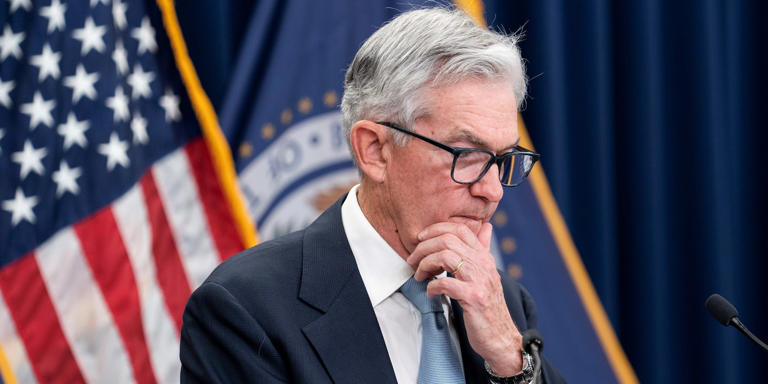Trade groups warn : hard landing is likely, unless the Fed takes two “simple steps.”
Three housing industry Trade groups are urging the Federal Reserve to take two straightforward actions to ensure a smooth economic landing.
“On Monday, the National Association of Home Builders, the Mortgage Bankers Association, and the National Association of Realtors expressed concerns to Fed Chair Jerome Powell in a letter, cautioning that additional interest rate increases would significantly increase the risk of a recession and a difficult economic downturn.
“Further rate increases and a persistently wide spread pose broader risks to economic growth, heightening the likelihood and magnitude of a recession,” the letter warned.
The trade groups emphasized that housing activity makes up approximately 16% of the US GDP. They also noted that if there isn’t a swift rebound in home sales, a sudden slowdown in both new and existing home sales could potentially have cascading effects on the overall economy.
To address the current situation, the trade groups strongly recommended that the Fed issue two statements:
1. “The Fed does not contemplate further rate hikes;”
2. “The Fed will not sell off any of its mortgage-backed securities holdings until and unless the housing finance market has stabilized and mortgage-to-Treasury spreads have normalized.”
“These steps will provide the market greater certainty about the Fed’s rate path and its plans for the MBS portfolio and reduce volatility for traders and investors,” the letter argued.
By letting up to billion in Treasury bonds and up to billion in mortgage-backed securities to mature each month without being reinvested, the Federal Reserve has been lowering its balance sheet.
Although the central bank hasn’t been selling assets directly, this process, known as quantitative tightening, has decreased its balance sheet by approximately trillion from its peak of trillion in March 2022.
“These two actions would probably boost confidence among home builders, facilitating the introduction of more homes into the market. An increase in the number of available homes would help to reduce housing-related inflationary expenses, which have been a major factor in the recent rise in total inflation over the past year.
You may also like to read Top Stories

